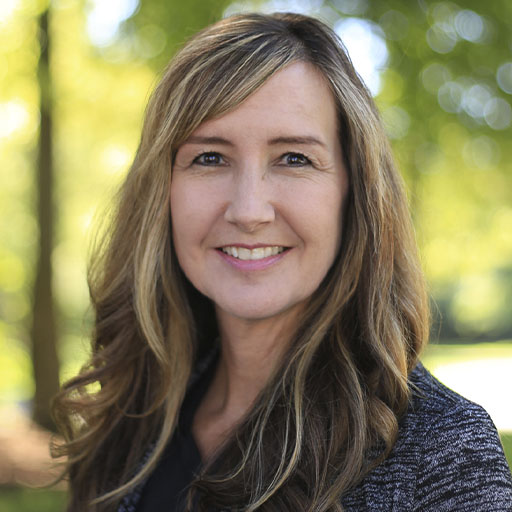Online Master's in Exercise Science

Expand Your Skills in Exercise Science
Calvin University’s online Master’s in Exercise Science program delivers the skills you need to help individuals maximize, restore, and renew the body, mind, and spirit. From rehabilitation to peak athletic performance to athletic administration, explore the science of movement with an online Master of Science in Exercise Science degree from Calvin University.
Learn More Today
Complete the form to learn more about this program.
- Duration 12-24 months
- Cost per Credit $673
- Credit Hours 30
Program Benefits
- Two concentration options
- Prepare for industry certification
- Flexible online format with 8-week terms
- Affordable tuition
- No GRE required for admission
Lead the Restoration and Renewal of the Body, Mind & Spirit
Designed for practitioners in the field, the Master’s in Exercise Science online program from Calvin University offers an affordable option for individuals seeking competency and certifications. This program is taught by industry experts with years of shared experience in exercise science. While completing the Exercise Science Master’s program online, you’ll learn from faculty members who teach with a Christian perspective and incorporate their real-world experience into lessons, preparing you to succeed in the next step in your career.
As a student of the online Master’s in Exercise Science program, you’ll choose between two career-focused concentrations. Select the performance and sport science or focus your studies on health and exercise rehabilitation.
Career Outlook
By earning your exercise science master’s degree online with Calvin, you’ll prepare for a variety of in-demand and rewarding positions. According to the Bureau of Labor Statistics, there’s a growing need for exercise science professionals, and the field is expected to grow by 16%.1 At this rate of expansion, more than 59,000 new exercise science careers will be created by 2029.2
Career OutlookCurriculum
Calvin University provides students with an academic experience founded on a Christian perspective. With the online Master’s Degree in Exercise Science program, you’ll gain the skills needed to help individuals maximize their potential and lead balanced, healthy lives.
The online Master’s in Exercise Science degree requires 30 total credit hours, including 22 from core courses and eight from concentration-specific courses. Choose from two concentration options in performance and sport science and health and exercise rehabilitation.
View Courses
Program Outcomes
Once you complete the online Master’s in Exercise Science program, you’ll be able to:
- Perform activities of comprehensive health and fitness assessment including risk assessment, readiness, and health-related physical fitness status.
- Create and advocate access to appropriate, safe, and effective exercise prescriptions for elite, healthy, at-risk, and diseased individuals.
- Apply exercise counseling and behavioral strategies to optimize adoption, adherence, and maintenance of healthy lifestyle behaviors.
- Develop ethical and legal practices in the management, administration, and leadership of programs in sport and exercise science.
- Develop a research study in exercise science.
- Develop one’s Christian perspective and philosophy of faith integration in exercise science.
Choose from Two Concentrations
The online Master’s in Exercise Science program offers a selection of two career-focused concentrations designed to increase your professional potential.
Admission Requirements
To apply for the online Master’s in Exercise Science program from Calvin University, you’ll need:
- A completed application
- A bachelor’s degree in allied health, exercise science, health promotion, psychology, sports management, or related wellness area from a regionally accredited college or university
- Official transcripts of all post-secondary academic coursework to demonstrate a minimum cumulative 2.8 GPA on a 4.0 scale
- A personal statement detailing your professional goals
- Two letters of recommendation
Tuition
Calvin University’s online Master’s in Exercise Science program requires the completion of 30 credit hours, at $673 per credit.
Get Tuition DetailsCalvin Faculty
Faculty members care deeply for student success and invest time building personal relationships and understanding students’ needs. They are passionate about their fields and are committed to helping every student succeed academically and professionally.
Faculty Spotlight

Kerrie Berends Ph.D., Program Director
Dr. Kerrie Berends is an associate professor in the department of Kinesiology at Calvin University. Her area of teaching in the department is exercise science and she is currently department co-chair.
Dr. Berends’ undergraduate degree is in physical education, with a specialization in corporate wellness. She holds a Ph.D. in Kinesiology and is a certified Exercise Physiologist and Sports Nutrition Specialist. Upon graduation in 1990, she worked as a worksite wellness specialist for the Kellogg Company and proceeded to also work as a personal trainer in the industry for multiple years following.
Dr. Berends also has two master’s degrees; Teaching and Physical Education (with an emphasis in adapted physical activity). Prior to teaching at Calvin University, she was a curriculum manager, professor, and department chair at Purdue Global University (8 years). While she was earning her doctorate, she served as an adapted physical education consultant for multiple public schools in Texas.
Financial Aid
At Calvin University, we’re committed to making your education affordable. Find out more about your financial aid options, including U.S. military benefits and employer tuition reimbursement.
Get Financial Aid DetailsOnline Learning That Fits Into Your Life
The program engages all areas of life. At Calvin, we believe that learning comes from doing, and we maintain our commitment to practical, hands-on application and experience for online students.
Embrace the flexibility of an online program coupled with individualized instruction.
Online Student ExperienceFrequently Asked Questions
If you have a question we don’t cover here, request more information or call 1-855-474-8346.
Calvin University is accredited by the Higher Learning Commission (HLC).
The next start date for this program is August 22.
Once you complete the online Master’s in Exercise Science, you’ll have the credential to pursue positions such as exercise physiologist, strength and conditioning coach, athlete manager, athletic facilities director, and more, depending on your chosen concetration. Visit the program’s careers page to learn more about career outcomes.
Calvin University was founded in 1876 on Reformed Christian principles and ethics. Today, its liberal arts curriculum utilizes a Christian perspective, but students of all religious backgrounds and cultures are welcome to Calvin’s outstanding educational opportunities.
The online Master’s in Exercise Science program can be completed in one year.
Tuition for the online Master’s in Exercise Science is $673 per credit hour.